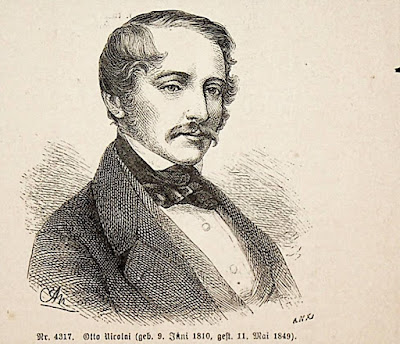Born on June 9, 1810 in Königsberg, Germany/Poland, Otto Nicolai passed away in Berlin on May 11, 1849.
At the age of 16, he left his parental house because he thought he mind find his personal fulfilment and luck by travelling to foreign countries.
A generous sponsor facilitated a music study with Karl-Friedrich Zeller (1758-1832) in Berlin. In 1833, Otto Nicolai became organist at the German Legation of Rome. He started composing operas following the typical Italian style. "Il Templaro" (1840) became his greatest success.
The premiere of "The Merry Wifes from Windsor" ("Die lustigen Weiber von Windsor" - 1849) impressed all classical music lovers with wonderful melodies and grateful opera parts. Nicolai could enjoy an over-whelming appreciation only for two months (!), because he passed away surprisingly.
During the 1930s a rebirth of his music works has been without success. What a pity!






